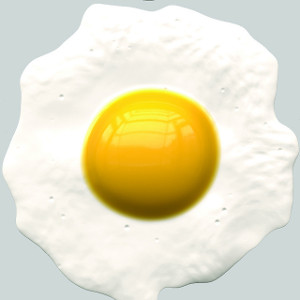I’ve been looking for a list like the one I found at Yahoo!Health for ages. Now, has granted one of my fondest wishes! Let me share with you her picks for the most pervasive – and just plain WRONG – food and dining myths…
 No matter how essential coffee may be to start your day, it is NOT a meal!
No matter how essential coffee may be to start your day, it is NOT a meal!
Not only wrong – but potentially dangerous
Some of the biggest, baddest food and nutrition myths circulating today are also some of the most persistent. And following them may actually be harmful to you. Here are my – and Yeung’s – Top 7 picks for the worst of the worst…
No. 1: Only shop the perimeter of the supermarket
That means (in most grocery store layouts) the Produce, Meat, Bakery and Frozen Food aisles. But that’s a silly simplification.
Dietician Lauren Harris-Pincus, founder of NutritionStarringYou.com and author of The Everything Easy Pre-Diabetes Cookbook, puts it: “The center aisles contain a treasure trove of nutrient-dense and cultural foods including frozen fruit, veggies and seafood, canned beans, fruit and vegetables, as well as dried beans, whole grains, nuts, seeds and spices.”
My take: Harris-Pincus is oh, so right! It struck me immediately, cogitating on this myth, that we’d miss the international aisle and all the exotic ingredients it has to offer! And that’s just the start of it…
No. 2: Low Cal and low fat are always healthier
“Opting for the lowest Calorie options possible will usually leave you feeling hungry and unsatisfied, causing you to eventually overeat,” Alyssa Pacheco, dietitian and founder of the PCOS Nutritionist Alyssa, tells Yahoo Life. “Additionally, not eating enough calories can backfire in the long run because it can lower your metabolic rate.”
Also, many high-calorie foods (such as nuts and seeds) contain essential ‘good’ fates and are full of vitamins and minerals.
My take: Again, this pernicious myth is a gross oversimplification. And a balanced approach to your diet will help you maintain a healthy ‘fullness’ sense. That’s the unconscious body function that’s supposed to stop you eating when you feel full, so you don’t get fat.
No. 3: Natural sugars are healthier than table sugar
Most compounds ending in ‘ose’ are sugars. Table sugar is ‘sucrose’. Fruit sugar is ‘fructose’. Milk sugar is ‘lactose’. Some taste fruitier or ‘stronger’ than others. Some taste sweeter than others. But they’re all sugars. And dieticians and nutritionists group them all under the same heading: ‘sugar’.
My take: They’re all sugars, and they’re all equally unhealthy, in excess. Excess sugar consumption is one of the main causes of overweight and obesity. And obesity, in turn, causes or abets some of the worst health scourges of our time: cardio-pulmonary diseases, type 2 diabetes and some cancers.
No. 4: Sea salt is healthier than table salt
All salts – regardless of colour, odour or flavour nuances, are basically sodium. An essential mineral we all need to survive. But one of the biggest sins of our time is the over-consumption of sodium – in many guises, in many foods. Too much salt contributes in a big way to cardio-vascular disease – notably the deposition of arterial plaque – which needlessly kills millions of folks the wo0rld over every year.
My take: One of the most important values in the Nutrition Facts list on any food package is the Sodium content. Virtually all national health and medical authorities in the western world agree that we should limit our total daily salt intake to no more than 2,300 mg. That’s the equivalent of one level teaspoonful (5 g) of pure table salt. Yer, the US Food and Drug Administration notes, “Americans eat on average about 3,400 mg of sodium per day.” And much of that is embedded in Fast Food and processed foods.
No.5: Eggs are bad for you
Eggs were, for a long time during the last century, vilified as laden with bad fats and cholesterol. But that narrow view ignored the wealth of good stuff eggs contain. Recent large-scale scientific studies have revealed that the positive value in eggs outweighs any negative effects. It’s perfectly alright for any healthy adult to eat an egg a day.
My take: Cholesterol? Other studies have revealed that there is no direct correlation between dietary cholesterol intake and blood cholesterol levels. Eggs are full of both good and bad fats, essential vitamins and minerals. And they remain one of the cheapest, yet most-concentrated protein sources we can access. Eggs should be in every home.
No. 6: Don’t eat after sundown.
Okay… For many of us, ‘sundown’ comes at vastly-differing clock hours as the seasons change. But 7 pm. is considered a good median time. Some folks have lived by this ‘rule’ all their lives. Nevertheless, the ‘old saw’ has many missing teeth, on close inspection.
But what about other cultures? For example, the Brits are noted for their somewhat different meals schedule: a big Breakfast, Elevenses’, ‘Tea’, and ‘Supper’ later at night, often at 9 or 10 p.m.
“For those who exercise late, a post-workout snack is still key for muscle repair and growth,” notes Katie Schimmelpfenning, founder of Eat Swim Win. And people who work at night need to eat while they’re awake. Many studies also show that it’s not necessarily eating late that leads to weight gain, but rather eating larger amounts of food in the evening. Eating more earlier in the day may help manage hunger later on and prevent overeating.”
My take: All of which is not to say it’s okay to eat heavily just before bedtime. That can often result in indigestion, reflux, sleeplessness and other aggravations. So govern yourself accordingly.
No. 7: Coffee is a meal
Hah! Not on your life! And if coffee is the main beverage you consume, it might be slamming your life!
“Many people can’t start the day without a cup of coffee. But it is by no means a replacement for breakfast or any meal,” Yeung cautions. “A cup of brewed black coffee may be antioxidant-rich, but it only has about 5 calories and no protein, fat or carbohydrates.”
Patricia Kolesa, dietitian and owner of the Dietitian Dish, told Yahoo!Life. She suggests, “In addition to coffee, include quick options like peanut butter on frozen waffles, Greek yogurt with fruit, or hard-boiled eggs on avocado toast to start the morning off right.”
My take: A nutrition-poor breakfast is why many folks suffer what’s known as ’11 o’clock letdown’. And perhaps the only worse way to start your day than ‘just a cup of coffee’, is a coffee accompanied a bowl of sugary cereal or a fat-and-sugar laden pastry.
The bottom line…
These are just the apex of what Yeung – and I – consider the biggest nutrition lies, and most pernicious, potentially dangerous food myths circulating today. There are many more out there. My advice? Use your critical-thinking and reasoning skills when evaluating any food or nutrition recommendations!
~ Maggie J.

